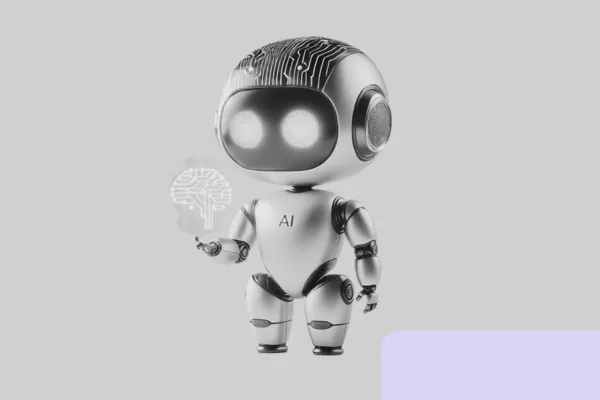Resources
Stay updated with the latest trends and insights in AI automation.
Our blog offers valuable articles, tips, and case studies to help you maximize the benefits of automation for your business.


The Future of AI Reasoning: Exploring OpenAI’s o1 Model
The Future of AI Reasoning: Exploring OpenAI’s o1 Model
Artificial intelligence (AI) has advanced rapidly over the past few years, with models like OpenAI’s GPT series revolutionizing natural language processing, content creation, and problem-solving. The newest addition to OpenAI's family, the o1 model, represents a significant leap forward in AI reasoning, designed to handle complex problems that require deep thinking rather than just rapid response generation. This blog will dive deep into OpenAI’s o1 model, exploring its unique features, applications, and potential impact on industries from healthcare to software development.
What is the OpenAI o1 Model and AI Reasoning?
The o1 model is part of OpenAI’s effort to develop AI that can better engage in complex problem-solving. Unlike previous models that mainly focused on rapid content generation based on statistical patterns, o1 takes a different approach by slowing down and spending more time thinking through problems. This refinement in AI reasoning allows o1 to learn from mistakes, adjust strategies, and refine its problem-solving processes to provide more accurate and thoughtful solutions.
In essence, the o1 model mimics human-like reasoning, where thoughtful consideration is prioritized over quick output. This shift is particularly important for solving complicated problems in fields like mathematics, coding, and scientific research, where the right answer often requires deep analysis rather than quick autocomplete responses.
Why "Slower" AI Reasoning is Better: The Thoughtful Approach to AI
One of the most groundbreaking aspects of the o1 model is its intentionally slower processing. While previous models like GPT-4o were optimized for speed, o1’s goal is to ensure accuracy over quickness through better AI reasoning. By slowing down the process, o1 can better handle multi-step tasks and refine its solutions iteratively.
For instance, when tasked with solving complex mathematical problems, o1 performs far better than its predecessors. The model’s ability to analyze and generate solutions highlights the importance of thoughtful AI reasoning, especially in fields like healthcare, physics, and chemistry, where errors could be costly or dangerous.
This focus on careful reasoning is expected to have far-reaching impacts across a wide range of industries. Whether it’s in scientific research or engineering, the slower, more thoughtful AI reasoning of o1 could revolutionize problem-solving approaches by allowing the model to adapt and evolve its strategies over time.
The o1 Mini: A More Affordable Solution with AI Reasoning Capabilities
Recognizing the growing need for different AI tools, OpenAI has also released the o1-mini, a smaller version of the o1 model that retains advanced AI reasoning but at a lower cost. While the full o1 model is designed for resource-intensive tasks, o1-mini provides a more affordable solution that’s still highly effective for coding and other reasoning-heavy tasks.
This means developers and small businesses can now access cutting-edge AI reasoning without having to invest in the more expensive versions. The introduction of o1-mini also opens the door for smaller teams to experiment with and benefit from sophisticated AI-driven problem-solving.
Application of AI Reasoning Across Industries
Healthcare:
OpenAI envisions the o1 model as a transformative tool in healthcare research. With its advanced AI reasoning, the model can assist with complex data annotation, such as analyzing cell sequencing data. The model’s ability to process large amounts of data and generate insights through reasoning could prove invaluable for researchers aiming to find patterns and anomalies in medical datasets.Scientific Research:
In physics and chemistry, the o1 model is expected to excel in generating complex mathematical formulas and handling multi-step tasks that require advanced reasoning. For scientists working in fields like quantum optics, o1’s capacity to deeply analyze problems and adjust its reasoning process could accelerate research and lead to groundbreaking discoveries.Software Development:
Coding is another area where o1’s AI reasoning capabilities shine. By using advanced reasoning to generate and debug complex code, the o1 model can assist developers in streamlining their workflows. This capability allows for more efficient coding processes, minimizing errors and improving overall software quality.Education and Training:
OpenAI plans to roll out the o1 model for educational purposes, where it can act as an AI tutor for students. By breaking down complex topics using AI reasoning, o1 could revolutionize how subjects like mathematics, science, and engineering are taught, providing students with step-by-step explanations that mimic the guidance of human tutors.
Limitations and the Road Ahead for AI Reasoning
While the o1 model offers groundbreaking advancements in AI reasoning, it is still in its early stages and comes with certain limitations. One key challenge is that o1 does not yet have the ability to browse the web or upload files and images, which limits its applications in areas requiring external data sources. Additionally, like other AI models, o1 is still prone to generating inaccurate or misleading information—a phenomenon known as hallucinations in AI.
Despite these limitations, OpenAI has plans to continue developing the o1 model, adding new features such as browsing and file uploads. As these updates roll out, the o1 model will likely become even more versatile, offering advanced reasoning capabilities across a broader range of applications.
What’s Next for AI Reasoning with OpenAI's o1 Model?
As OpenAI continues to refine the o1 model, we can expect to see even more advancements in AI reasoning and capabilities. Currently, there are limitations on the number of queries users can ask the model, but OpenAI has plans to increase these limits and further enhance the model’s reasoning abilities.
In collaboration with AI safety institutes, OpenAI is also working to ensure that the o1 model adheres to the highest standards of safety and ethics. This involves rigorous testing to prevent the misuse of AI technology and to safeguard against potential risks. With the continued development of the o1 series, we are entering a new era of AI reasoning, where machines don’t just provide quick answers but can reason through and solve complex problems effectively.
Conclusion
OpenAI’s o1 model represents a paradigm shift in artificial intelligence, moving beyond rapid response generation to focus on deep reasoning and thoughtful problem-solving. From healthcare to software development, the o1 model promises to revolutionize industries that require accuracy, multi-step thinking, and the ability to learn from mistakes. While still in its early stages, the o1 model’s potential is vast, and with further development, it could become the go-to solution for tackling the world’s most complex challenges.
As AI continues to evolve, models like o1 will lead the way in making machines not just faster but also smarter, more reliable, and ultimately more useful in helping us solve the problems of tomorrow.

UK - LONDON
The Leadenhall Building
122 Leadenhall Street
PL - GDANSK
Oliva Business Center
Grunwaldzka
472

© 2024 Automee.
All rights reserved.
Services
Sales With AI
AI Customer Support
HR With AI
Back Office Automation
Stay Connected With Us
US - NEW YORK
autoMEE LLC - 244 Madison Avenue, NY
+1 646 687 2961
+1 646 846 8711
UK - LONDON
autoMEE LTD - 122 Leadenhall Street, London
+44 78 6213 9448
+44 74 8889 9833





